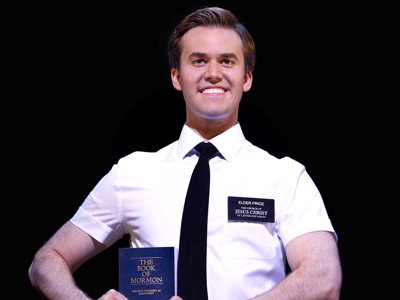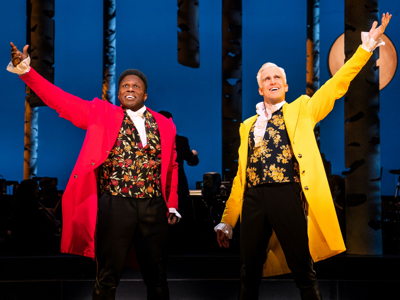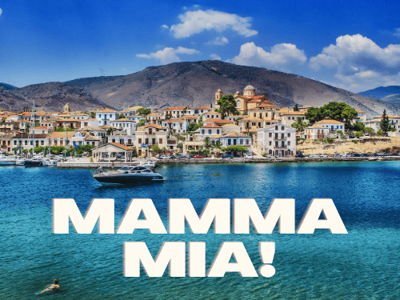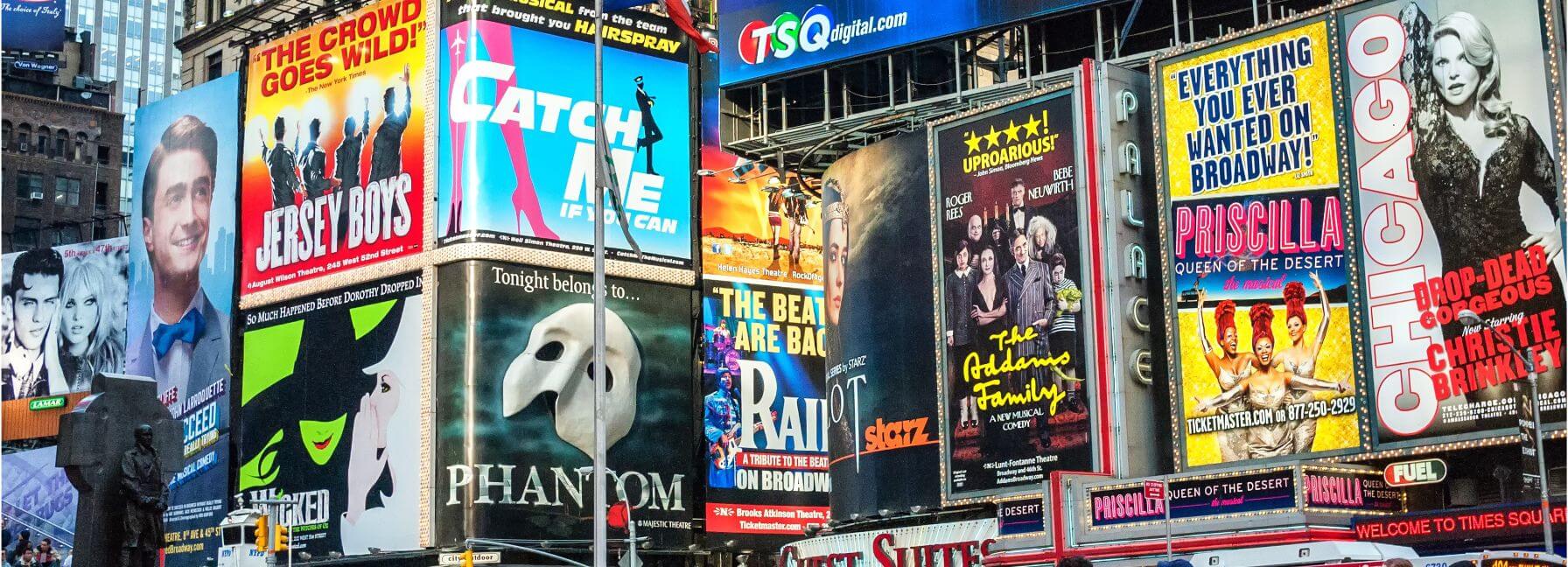Musicals StageAgent Announcements
Unlock the StageAgent Glossary: 10 Fun Musical Theatre Terms You Have to Know!
Alexandra Appleton | Last updated: October 23, 2025
Introducing...The StageAgent Glossary: The Musical Theatre Edition!
Whether you're a wide-eyed student cramming for drama class, a die-hard fan dissecting every Hamilton Hamilton, or just someone who thinks "one singular sensation" sounds like a killer coffee order, you've probably hit a wall with some of those fancy terms tossed around in show guides and glossy programs. Fear not! Here at StageAgent, we're all about demystifying the magic, so we've rounded up 10 glossary gems to supercharge your inner Broadway buff. We'll sprinkle in fun examples from iconic shows that'll have you humming, laughing, and maybe even tapping your toes under the desk.
But don't worry - you're not limited to 10! The StageAgent Glossary is here to help demystify all the terms used throughout our show guides and theatre in general!
Think of this as your cheat sheet to sounding like you've got a Tony in your back pocket—without the hefty price tag of a nosebleed seat. And stick around to the end for a pro tip on where to geek out even more. Ready to raise the curtain? Let's dive in!
1. Ballad: The Emotional Gut-Punch Solo
"A ballad is a song style that tells a story through simple, lyrical verses and a steady rhythm. In theatre, ballads are often slow and emotional, allowing characters to reveal deep feelings or reflect on personal journeys. They can be used to highlight romance, longing, or moments of dramatic intensity."
A ballad is that slow-burn song that tugs at your heartstrings, letting characters spill their soul through lyrical verses and a steady rhythm. It's the musical equivalent of a late-night cry over ice cream—raw, reflective, and ridiculously relatable. Picture Elphaba in Wicked belting "I'm Not That Girl". It's a ballad that captures that "what if" ache of unrequited love, leaving audiences (and you, ugly-crying in row G) pondering life's unfair plot twists. Next time you're feeling dramatic, channel your inner ballad and serenade your cat. Just don't blame us for the scratched furniture.
2. Book: The Script's Secret Sauce (Minus the Songs)
"In musical theatre, the script or spoken text of the show, not including the music or lyrics."
In musical theatre, the "book" is the spoken dialogue and stage directions—the non-singing backbone that glues the whole shebang together. It's like the plot outline for your favorite rom-com, sans the pop soundtrack. Take The Book of Mormon. The book (written by Robert Lopez, Trey Parker and Matt Stone) weaves hilarious, irreverent dialogue around those earworm tunes, turning missionary mishaps into comedy gold. Without a tight book, your show might flop harder than a bad improv night. Pro tip: Reading the book aloud is the best party trick for theatre nerds.

Kevin Clay as Elder Price in The Book of Mormon. Photo by Paul Coltas.
3. Camp: Over-the-Top with a Wink
"Camp is a performance style that celebrates exaggeration, theatricality, and deliberate bad taste for comic or satirical effect. Often marked by irony, flamboyance, and over-the-top characterizations, camp turns the absurd into entertainment. In theatre, it invites audiences to laugh both at and with the performance’s outrageousness."
Camp is all about embracing the absurd—exaggerated flair, ironic fabulousness, and "so bad it's brilliant" vibes that turn cheese into caviar. It's theatre's love letter to drag queens, glitter, and zero chill. Enter The Rocky Horror Picture Show, where Tim Curry's Frank-N-Furter slays in fishnets and a corset, delivering campy chaos that has audiences tossing toast for decades. Camp isn't just fun; it's a reminder that life's too short for beige outfits. Go forth and camp it up—your next costume party demands it!
4. Concept Musical: Plot? What Plot? (It's All About the Vibe)
"A concept musical is a type of musical structured around a central idea, theme, or message rather than a straightforward linear plot. Songs, characters, and scenes are often arranged to explore this unifying concept from different perspectives. This style allows for greater experimentation and can blend satire, social commentary, or abstract storytelling."
Forget linear stories; a concept musical revolves around a big idea or theme, with songs circling back like a philosophical conga line. It's experimental, satirical, and oh-so-smart. Company by Stephen Sondheim nails this, probing marriage and loneliness through vignettes and razor-sharp tunes like "The Ladies Who Lunch". It's like a therapy session set to music—hilarious, haunting, and guaranteed to spark dinner-table debates. Warning: May cause existential pondering post-intermission.
5. Conditional Love Song: "If Only" Flirtation at Its Finest
"A Conditional Love Song is a duet where two characters sing about love in a hypothetical or playful way, often before they admit their true feelings. Commonly using phrases like “if we were in love,” this song type allows romance to blossom while maintaining dramatic tension. It has become a staple of musical theatre storytelling, blending charm, humor, and foreshadowing."
Oooh teasing romance with "what ifs" and hypotheticals, building tension before the big confession. It's the musical's flirty foreplay—charming, coy, and full of foreshadowing. In Guys and Dolls, "I'll Know" has Sky and Sarah crooning about spotting true love, all while dancing around their sparks. It's adorable awkwardness in verse form, perfect for that crush you're "just friends" with. Sing it next time you're dodging a date invite—subtle as a spotlight!
6. Counterpoint: Melodic Mayhem in Harmony
"Counterpoint is a musical technique where two or more independent melodies are combined and performed simultaneously. Each line maintains its own rhythm and contour, yet together they create harmonic richness and complexity. This interplay adds texture, depth, and dynamic contrast to a piece of music."
Counterpoint layers independent melodies that weave together like a vocal braid, creating rich, complex sound without stepping on toes. It's musical multitasking at its most mesmerizing. Into the Woods uses it masterfully in "Agony," where two princes lament their crushes in overlapping woes. The clashing complaints create comedic cacophony—proof that even fairy-tale heartbreak sounds better in stereo. Try humming it in a crowded elevator; bonus points if no one calls security.

Joshua-Henry & Gavin-Creel in Into the Woods. Photo by Matthew Murphy and Evan Zimmerman for MurphyMade.
7. Golden Age Musical: The Sparkly '40s-'60s Heyday
"The Golden Age Musical refers to Broadway shows written roughly between the 1940s and 1960s, a period known for integrating songs, story, and character development. These musicals often balanced romance, comedy, and social themes with memorable melodies and large ensembles. Classics from this era continue to shape the foundation of modern musical theatre."
This era's shows fused hummable hits with heartfelt stories, birthing timeless classics. Big bands, bigger emotions—pure theatrical nectar. My Fair Lady epitomizes it, transforming Eliza Doolittle via wit, waltzes, and "Wouldn't It Be Loverly?" It's why we still swoon over accents and ascendancy. Golden Age gems are comfort food for the soul—rewatch Oklahoma! and feel that pioneer pep return.
8. I Want Song: The Hero's "Gimme" Anthem
"An I Want Song is a number, usually placed early in a musical, where a main character expresses their deepest desire or ambition. This song sets the character’s journey in motion and gives the audience a clear emotional stake in the story. It has become one of the most recognizable and enduring conventions of musical theatre structure."
Early-act powerhouse where the protagonist belts their burning desire, hooking us into their quest. It's the "before" snapshot of transformation. Ariel's "Part of Your World" in The Little Mermaid captures that ocean-to-shore itch perfectly—wistful, wondrous, and wave-ready. Every dreamer has an I Want song; yours might be "Nine to Five" if TPS reports are your villain. What's fueling your finale?
9. Jukebox Musical: Pop Hits Meet Plot Twists
"A jukebox musical is a type of musical where the score is made up of pre-existing, well-known popular songs instead of original music."
These crowd-pleasers stitch pre-existing songs into a narrative—like a mixtape with a storyline. Nostalgia on steroids! Mamma Mia! ABBA-fies a mother-daughter tale with "Dancing Queen" dance-offs and proposal pandemonium. It's feel-good karaoke theatre—sing along, spill your ouzo, no regrets. Ideal for boomers and zoomers bonding over bee-gees... er, bee-girls.

10. Megamusical: Epic Scale, Global Domination
"A large-scale musical with elaborate staging, global appeal, and strong branding, such as Les Misérables or Phantom."
Lavish, long-running spectacles with pyrotechnics, phantoms, and powerhouse vocals—think international juggernauts that tour forever. The Phantom of the Opera haunts with chandeliers and masked mischief, racking up records like a gothic rockstar. Mega means massive: sets that swallow stages, scores that stick like chandelier shards. If your life's a megamusical, cue the fog machine!
Craving more?
Head straight to our StageAgent Glossary—it's packed with hundreds of terms, examples, and etymological Easter eggs to fuel your fandom. Bookmark it, share it, and let's keep the conversation (and the curtains) rising.
Originally Published: October 23, 2025
Last Updated: October 23, 2025
Blog Written By:
More From StageAgent Announcements
Welcome to StageAgent
Our mission is to provide actors, directors, teachers and backstage staff with the ultimate theatre research and education platform.
Enjoy amazing theatre resources:
Browse Blog Categories
Auditions and jobs
near
{{headerProps.location}}
Upcoming performances

